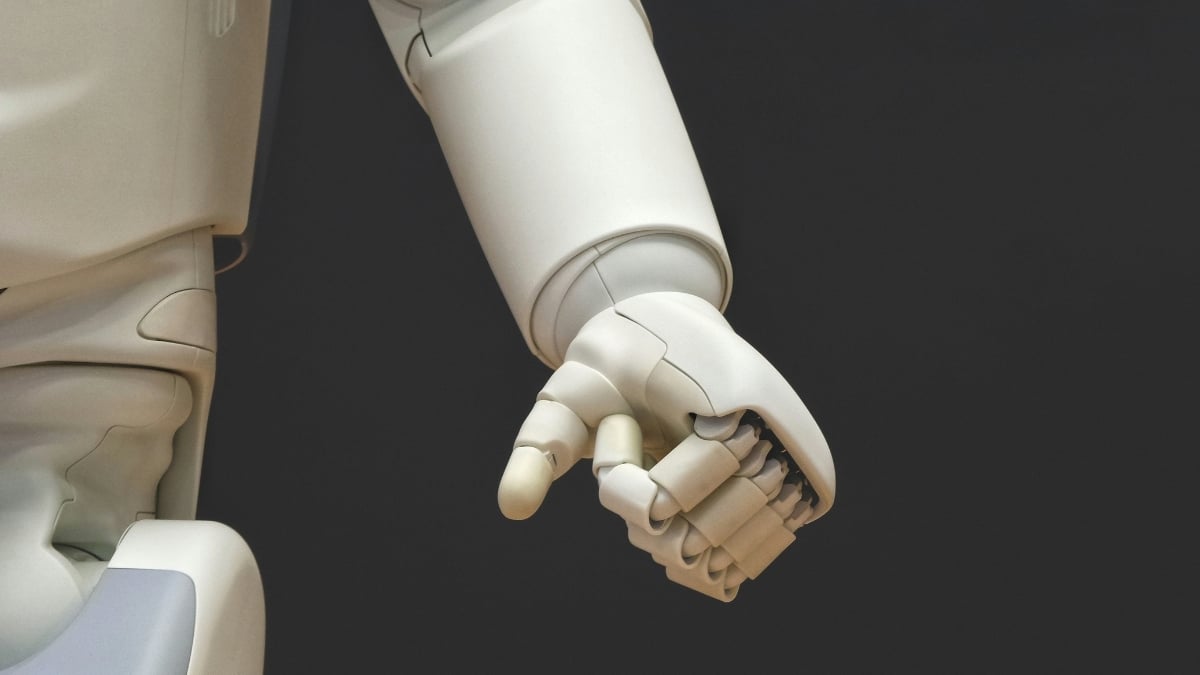We’ve Seen the Dire Wolf Movie and It Doesn’t End Well
Authors: John Stonestreet and Shane Morris
3 min read
 Breakpoint
:
Aug 1, 2025 4:00:00 AM
Breakpoint
:
Aug 1, 2025 4:00:00 AM

Authors: John Stonestreet and Shane Morris
One of the clearest proofs that Christianity addresses the fundamental problems of humanity is the bizarre lengths to which non-Christians will go to address those same problems without Christ. For example, tech billionaire Peter Thiel, former CEO of PayPal, recently went on Ross Douthat’s “Interesting Times” podcast to discuss AI, Mars, immortality, and other light topics. The conversation was genuinely interesting, especially when Douthat asked, “Should the human race continue?” Thiel paused and said “um” and “I don’t know” quite a few times.
“This is a long hesitation!” observed Douthat, laughing nervously.
Finally, Thiel explained that humanity should survive, but that there are problems in need of solving. Chief among those is death, he said, which transhumanists have long hoped to conquer via a “radical transformation” of the human body into an “immortal body.”
The problem with efforts like transgenderism, in Thiel’s opinion, isn’t that they change bodies too radically, but not radically enough: “[W]e want more transformation than that. ... We want you to be able to change your heart and change your mind and change your whole body.” Thiel then pointed to Christianity and its doctrines of Redemption and Resurrection as precedent for the transhumanist idea of total self-transformation and conquest of death. Maybe, he hinted, the two philosophies aren’t so different.
Douthat, a Roman Catholic, pushed back, pointing out that according to Christianity, God does the transforming. “The person,” Douthat said, “who tries to do it on their own with a bunch of machines is likely to end up a dystopian character.” Do-it-yourself immortality is, at best, “a heretical form of Christianity.”
Theil’s fundamental assumption, which is foreign to the Bible and Christianity but common among tech futurists and transhumanists, is that our minds are more important and fundamental than our bodies. Our “true selves” are our minds and separable from who we are physically.
Not only is this assumption a rehashed version of the ancient heresy of Gnosticism, it also creepily resembles the philosophy of the evil National Institute of Coordinated Experiments (or N.I.C.E.) from C.S. Lewis’ That Hideous Strength. In the story, Dr. Filostrato hopes to cleanse the world of organic life, replacing trees, birds, and even human bodies with machines. He even proposed something akin to uploading human consciousness.
That’s not to say that transhumanists like Thiel are involved in an intergalactic conspiracy run by demons speaking through a disembodied Head, as in the book. At least not knowingly. But the transhumanist’s urge to overcome human limits, become more machine-like, and live forever is eerily similar. As is their rhetoric.
It’s also notable that, unlike anti-humanists on the Left, transhumanists assume the human race is worth preserving. Elon Musk, for example, thinks it’s our duty to have as many babies as possible, by any means necessary. He also thinks that humans should be the ones to colonize other planets. In a sense, he acknowledges that humans are exceptional, in a way at least similar to how Scripture describes humans.
Yet, his view of human exceptionalism has a “you will be like God” promise to it, and a sense that all human problems are technical glitches to be overcome by innovation and engineering. So, our mortality can be solved through “radical transformation” of our bodies. Our fragile fertility can be solved through IVF. Our lack of knowledge can be solved through AI, and our limits can be overcome by the technologies pioneered by Thiel and others like him.
Theil’s company Palantir was named, without any apparent irony, after the “seeing stones” in The Lord of the Rings that corrupt all who gaze into them.
Humans were made in the image of God and, as such, were made to be like Him and live forever. Death is “the last enemy,” and our longing for immortality is core to who we are. Perhaps this is why transhumanist promises are so compelling. However, we were made to do and receive all this through God, not our own ingenuity.
Transhumanism, it turns out, is indeed a Christian heresy, an ideology that rightly identifies the problems of a fallen world. But it seeks to overcome them with a false gospel of technological godhood, rather than the true gospel of salvation through Christ.
God willing, Thiel’s openness to Christianity and his conversations with Christians will move him to accept his need for Christ. Until then, believers should be fully aware that the transhumanist gospel is a false one. Only Christ can change our hearts, change our minds, and change our whole bodies ... not a tech billionaire.

Authors: John Stonestreet and Shane Morris

Authors: John Stonestreet and Shane Morris

Authors: John Stonestreet and Shane Morris